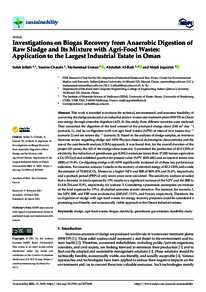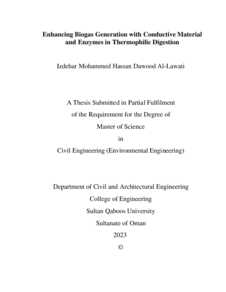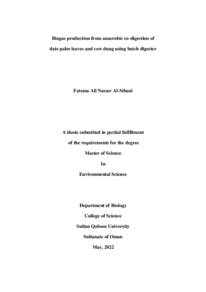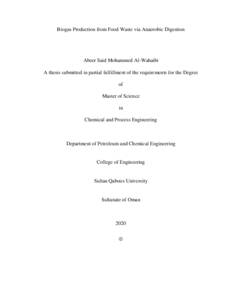Document
Combustion and emissions characteristics of date pit methyl ester in a single cylinder direct injection diesel engine.
Identifier
DOI: 10.1016/j.fuel.2019.01.022
Source
Fuel. v. 243, p. 162-171
Contributors
Jamil, Farrukh., Author
Zaglis-Tyraskis, Ernesto., Author
Al-Muhtaseb, Ala'a H. , Author
Al-Haj, Lamya., Author
Ladommatos, Nicos., Author
Country
Netherlands.
Publisher
Elsevier Ltd.
Gregorian
2019-05-01
Language
English
Subject
English abstract
Current biofuels for diesel engines are largely derived from food crops and there is significant concern, recognised by legislation, that such fuels do not result in net reductions of greenhouse gas emissions when considering the entirety of the production to usage lifecycle. A potential alternative approach is to utilise the lipid content of organic waste streams arising from food crop cultivation for the manufacture of sustainable diesel fuels. This paper therefore presents experimental studies carried out on a modern direct injection diesel engine supplied with a biodiesel (fatty acid methyl esters) produced from waste date pits to determine the combustion and emissions characteristics of an alternative fuel produced from a food residue. Date pit methyl esters were tested relative to both rapeseed and soybean methyl esters, unblended and as blends with a reference fossil diesel, alongside reference fossil diesel and a commercially available fossil diesel from Oman, at constant injection timing and constant ignition timing at a constant engine speed of 1200 rpm. Gas chromatograph analysis of the methyl esters fatty acid composition found a significantly shorter mean alkyl moiety chain length and lower number of double bonds in the case of the date pit esters than either the rapeseed or soybean biodiesel. All of the methyl esters exhibited a similar duration of ignition delay less than that displayed by a reference fossil diesel, but with a higher premixed burn fraction and peak heat release rate in the case of date pit methyl esters relative to those of rapeseed and soybean. Exhaust emissions of NOx were found to be lowest for the unblended date pit methyl esters, suggesting a greater influence of adiabatic flame temperature on rates of thermal NOx production than global in-cylinder temperatures in the case of the unblended methyl esters. Relative to the reference fossil diesel and Oman diesel, all of the methyl esters tested resulted in low particulate matter emissions.
ISSN
0016-2361
Category
Journal articles





